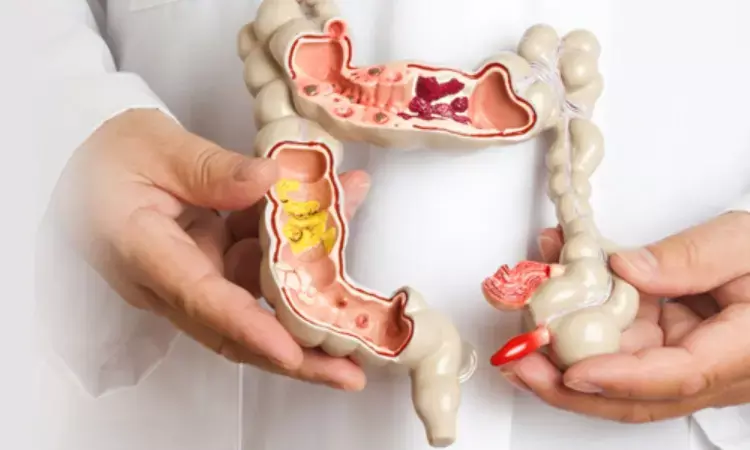- Home
- Medical news & Guidelines
- Anesthesiology
- Cardiology and CTVS
- Critical Care
- Dentistry
- Dermatology
- Diabetes and Endocrinology
- ENT
- Gastroenterology
- Medicine
- Nephrology
- Neurology
- Obstretics-Gynaecology
- Oncology
- Ophthalmology
- Orthopaedics
- Pediatrics-Neonatology
- Psychiatry
- Pulmonology
- Radiology
- Surgery
- Urology
- Laboratory Medicine
- Diet
- Nursing
- Paramedical
- Physiotherapy
- Health news
- Fact Check
- Bone Health Fact Check
- Brain Health Fact Check
- Cancer Related Fact Check
- Child Care Fact Check
- Dental and oral health fact check
- Diabetes and metabolic health fact check
- Diet and Nutrition Fact Check
- Eye and ENT Care Fact Check
- Fitness fact check
- Gut health fact check
- Heart health fact check
- Kidney health fact check
- Medical education fact check
- Men's health fact check
- Respiratory fact check
- Skin and hair care fact check
- Vaccine and Immunization fact check
- Women's health fact check
- AYUSH
- State News
- Andaman and Nicobar Islands
- Andhra Pradesh
- Arunachal Pradesh
- Assam
- Bihar
- Chandigarh
- Chattisgarh
- Dadra and Nagar Haveli
- Daman and Diu
- Delhi
- Goa
- Gujarat
- Haryana
- Himachal Pradesh
- Jammu & Kashmir
- Jharkhand
- Karnataka
- Kerala
- Ladakh
- Lakshadweep
- Madhya Pradesh
- Maharashtra
- Manipur
- Meghalaya
- Mizoram
- Nagaland
- Odisha
- Puducherry
- Punjab
- Rajasthan
- Sikkim
- Tamil Nadu
- Telangana
- Tripura
- Uttar Pradesh
- Uttrakhand
- West Bengal
- Medical Education
- Industry
Endoluminal stenting reduces stoma formation in colorectal cancer with obstruction: Study

UK: Colorectal cancer is often presented with obstruction that requires urgent, potentially life-saving decompression. For such patients, the comparative safety and efficacy of endoluminal stenting versus emergency surgery as initial treatment are uncertain.
Considering the above, researchers from the CReST Collaborative Group in their study, published in the British Journal of Surgery, stated that stenting as a bridge to surgery decreases the formation of stoma without any detrimental effects.
The study included patients with left-sided colonic obstruction and radiological features of carcinoma. 245 patients were randomized to endoluminal stenting using a combined endoscopic/fluoroscopic technique followed by elective surgery 1–4 weeks later, or surgical decompression with or without tumor resection between 23 April 2009 and 22 December 2014. Allocation of treatment was done via a central randomization service using a minimization procedure. This was stratified by curative intent, primary tumor site, and severity score (Acute Physiology And Chronic Health Evaluation).
Co-primary outcome measures were 30-day mortality and duration of hospital stay. Secondary outcomes include stoma formation, perioperative morbidity, stenting completion, complication rates, 6-month survival, 3-year recurrence, adherence to chemotherapy, resource use, and quality of life. Analyses were undertaken with the intention to treat.
Key findings include:
- Stenting was attempted in 119 of 123 allocated patients (96.7 percent), achieving relief of obstruction in 98 of 119 (82.4 percent).
- For the 89 percent treated with curative intent, there were no significant differences in 30-day postoperative mortality (3.6 percent (4 of 110) versus 5.6 percent (6 of 107), or duration of hospital stay (median 19 (i.q.r. 11–34) versus 18 (10–28) days) between stenting followed by delayed elective surgery and emergency surgery.
- Among patients undergoing potentially curative treatment, stoma formation occurred less frequently in those allocated to stenting than those allocated to immediate surgery (47 of 99 (47.5 percent) versus 72 of 106 (67.9 percent)).
- There were no significant differences in perioperative morbidity, critical care use, quality of life, 3-year recurrence, or mortality between treatment groups.
The researchers conclude, "stenting as a bridge to surgery reduces stoma formation without detrimental effects."
Reference:
CReST Collaborative Group, Colorectal Endoscopic Stenting Trial (CReST) for obstructing left-sided colorectal cancer: randomized clinical trial, British Journal of Surgery, 2022;, znac141, https://doi.org/10.1093/bjs/znac141
Dr Kamal Kant Kohli-MBBS, DTCD- a chest specialist with more than 30 years of practice and a flair for writing clinical articles, Dr Kamal Kant Kohli joined Medical Dialogues as a Chief Editor of Medical News. Besides writing articles, as an editor, he proofreads and verifies all the medical content published on Medical Dialogues including those coming from journals, studies,medical conferences,guidelines etc. Email: drkohli@medicaldialogues.in. Contact no. 011-43720751


